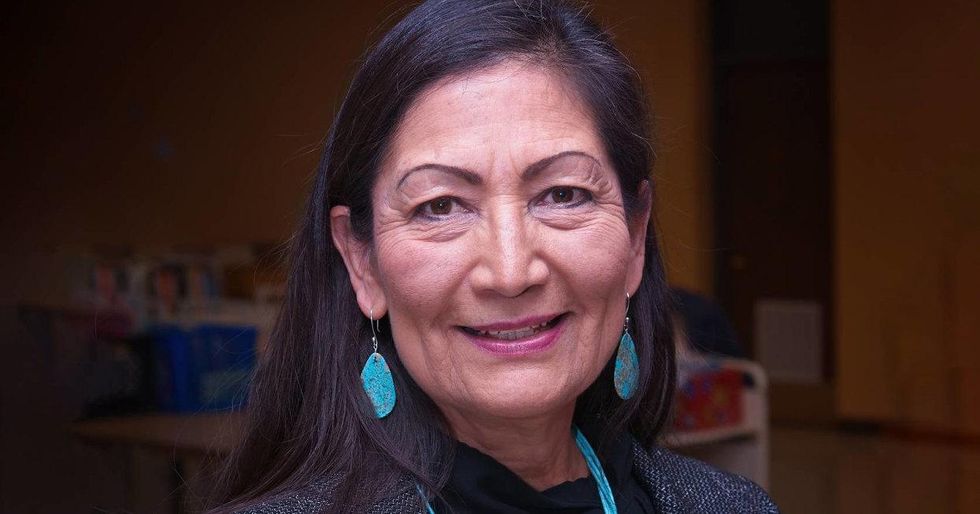
Forty years of good intentions
Will environmental justice get a jump-start from President Biden?
The American environmental movement, and environmental politics in general, are in middle age.
So is a major environmental crisis that never seems to move toward resolution: Locating the nation's worst waste sites and polluting factories in or near poor and minority communities. Nearly 40 years after its debut as a national issue, will environmental justice finally get its due?
Environmental racism didn't begin in 1982 any more than racism itself began in 1982. But in the fall of that year, the state of North Carolina began the transfer of hundreds of truckloads of soil contaminated with carcinogenic PCB's to a new landfill in predominantly poor, Black Warren County.
Civil rights icons like Rev. Joseph Lowery, Warren County's own Floyd McKissick and Walter Fauntroy, Washington D.C.'s Congressional Delegate, helped lead mass protests in which 500 people were arrested for blocking the waste trucks. The PCB trucks eventually got through, but the protestors won a compromise ending further shipments to the site. And environmental justice drew national attention for the first time.
Delegate Fauntroy commissioned a General Accounting Office (GAO) report on racial and economic biases in siting hazardous waste facilities. Published in 1983, the GAO report determined that three-quarters of the hazardous waste dumps in eight Southeastern states are located in or near poor African-American or Latino communities.

Walter Fauntroy in 1998. (Credit: Elvert Barnes/flickr)
In 1987, the United Church of Christ's Commission for Racial Justice (CRJ) issued a report, Toxic Wastes and Race in the United States, that affirmed such practices were both systemic and nationwide. In 1990, sociologist Robert Bullard published a book, Dumping in Dixie: Race, Class, and Environmental Quality, which told the stories of impacted communities throughout the South. And the Rev. Jesse Jackson pointed out what by now was obvious: While dangerous sites are commonplace in poor and minority communities, "there are no nuclear waste dumps in Beverly Hills."
Also in 1990, the CRJ sent a stinging letter to the heads of 10 of the nation's largest environmental groups, citing the overwhelmingly White makeup of the groups' boardrooms and executive suites. Environmental racism, the critics said, begins at home. And the Environmental Protection Agency under Republican appointee William Reilly, created what would become the Agency's environmental justice office.
The late Rep. John Lewis introduced the first environmental justice bill in Congress in 1992, with active support from Vice President Al Gore. It failed.
In 1994, President Clinton signed Executive Order 12898, mandating that all federal agencies and federally funded projects must consider the impacts of those projects on poor and minority communities.
Which is why it's stunning that 39 years after Warren County:
- Louisiana's "Cancer Alley" --an 85-mile stretch of the Mississippi under the footprint of over 150 petrochemical plants—faces an onslaught of newer, bigger oil and gas facilities;
- Uniontown, Alabama, is battling efforts to make it the final resting place for toxic coal ash from hundreds of miles away;
- Aging inner-city drinking water systems in places like Flint, Michigan, and Newark, New Jersey, have imperiled residents;
- Indigenous tribes consistently contend with pipeline construction and uranium mining.
And there are many more examples.
The Biden Administration has set the bar higher than any of its predecessors. His nominee for EPA Administrator, Michael Regan, would be the agency's second Black leader. He brings his experience as North Carolina's environmental chief. Since Warren County, environmental justice issues have been hard to ignore in the state: Just try driving down Interstate 95 on a summer day with the windows open and take in the aromas of massive industrial hog farming.
At the Department of the Interior—what a concept—Biden has nominated Deb Haaland as the first Indigenous leaders to serve as Interior Secretary. Both Regan and Haaland, if installed, inherit demoralized and reduced staffs and slashed budgets left behind by Trump appointees. But both have promised to extend environmental justice efforts to embrace climate change impacts on poor and minority communities.

Congresswoman Deb Haaland.
The Biden Administration is attaching some specifics to the rhetoric. One ambitious project would nationalize an ambitious California effort to inventory threats to disadvantaged communities—CalEnviroScreen, a screening tool that factors income, race, and pollution to identify the state's most at-risk cities and towns.
Environmental justice has never been a political top priority. In a year when COVID-19 and the economy have jumped the line and hogged the headlines, can Biden push beyond good intentions?
If environmental justice seems historically mired in indifference, cleanup of polluted sites through the landmark "Superfund" law -- the Comprehensive Environmental Response, Compensation, and Liability Act of 1980-- grew tangled in litigation and starved by lack of funding. We'll focus on that next weekend.
Peter Dykstra is our weekend editor and columnist and can be reached at pdykstra@ehn.org or @pdykstra.
His views do not necessarily represent those of Environmental Health News, The Daily Climate, or publisher, Environmental Health Sciences.
Banner photo: A protest over PCB dumping in Warren County, NC. (Credit: NCDCR.gov)













